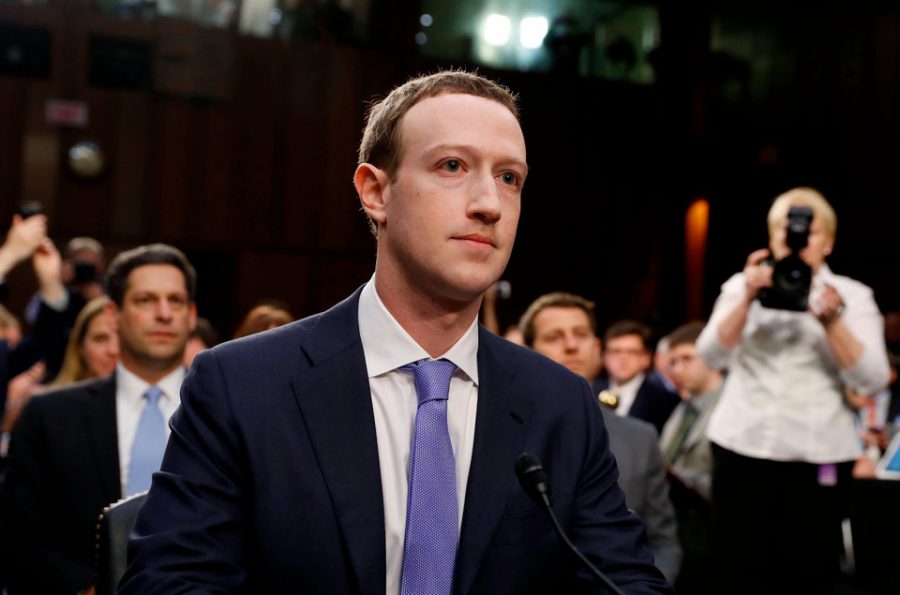Mark Zuckerberg goes on trial for Facebook’s privacy policy
Mark Zuckerberg, the founder of Facebook, was on trial for having an inadequate privacy policy and cybersecurity issues on the social platform.
Back in 2016, Cambridge Analytica was an app created by using accessible information off of Facebook to sway the public’s vote in the election. Cambridge Analytica was able to gain access to private information on over 87 million Facebook users. It was started by Dr. Aleksandr Kogan in order to find potential Trump voters. This breach of security had Facebook users reacting negatively, worried that they were being digitally analyzed without permission.
Elon Musk, in response to what was going on, deleted both the Facebook accounts for Tesla and SpaceX, which was shown in a series of tweets with some followers encouraging him to do so. He then sent out #deletefacebook in response to a tweet Brian Acton sent. Both Facebook pages had around 2.6 million followers before they were deleted, which made Musk’s motives even more high stakes and noteworthy.
Facebook has had access to a lot more than most people realize. They were able to depict user ethnicity, personality traits, political views, and use of substances based on the information from likes and posts. Cambridge got under 300,000 people to actually consent to the data collection, and those people who consented also allowed for them to retrieve information from all of their Facebook friends, which is how they got the information of so many users.
Originally, Facebook approved of Cambridge Analytica because it was using information that was on the public domain, which users agreed to have available to the public when they made their accounts and signed the privacy policy.
However, Facebook does not allow for that data to be transferred or sold, which is what Cambridge did. Dr. Kogan admitted to nothing and cited a non-disclosure agreement. Later, Cambridge Analytica workers acknowledged the acquisition of the data and blamed Dr. Kogan for the problems with Facebook.
The story remains unclear, with people worried about their privacy and wondering about where the truth lies in the midst of the chaos. Mark Zuckerberg, the founder of Facebook, has taken responsibility for letting Facebook’s private information of users to be accessed by unwanted companies who don’t have permission. He expressed his apology during his time in front of Congress.
“It was my mistake and I’m sorry,” said Zuckerberg.
People are not just taking his apology; however, they want to know what he will do in the future so nothing like this will happen again. He has said that he is creating a three-year preventative program, although the specific course of action is somewhat unclear.
“Right now, I don’t think we are transparent enough around the prevalence of different issues on the platform. We haven’t done a good job of publishing and being transparent about the prevalence of those kinds of issues… It is clear now that we didn’t do enough to prevent these tools from being used for harm as well” Zuckerberg admits.
“Always check your sources” college freshman, Timothy Wetzel, says.
The internet is so full of non-credible information and people should be careful with what they believe. If people assume everything they find is correct, they will end up with a myriad of confusing messages. Finding better sources can be done by knowing what websites are accredited, consistently reliable, objectively reported, and written by people who have extensive knowledge on the topic.
To an extent, Facebook users should realize their own accountability in the problem.
As Wetzel put it, “users agree to terms and conditions that most people don’t read.”
If people consent to a list of terms and conditions, they need to understand that they are held to what was written, regardless if they knew the full set of the implications it had. It is the job of the users to be educated on what they agree to. That is not to say that Facebook is off the hook, but people should remember that there are always multiple causes to an issue, and it is important to understand how each role that plays into it.
Sources:
https://www.vox.com/2018/3/20/17138756/facebook-data-breach-cambridge-analytica-explained
https://abcnews.go.com/Technology/wireStory/facebooks-privacy-policy-surprise-54023110
https://www.nytimes.com/2018/03/19/technology/facebook-cambridge-analytica-explained.htm






